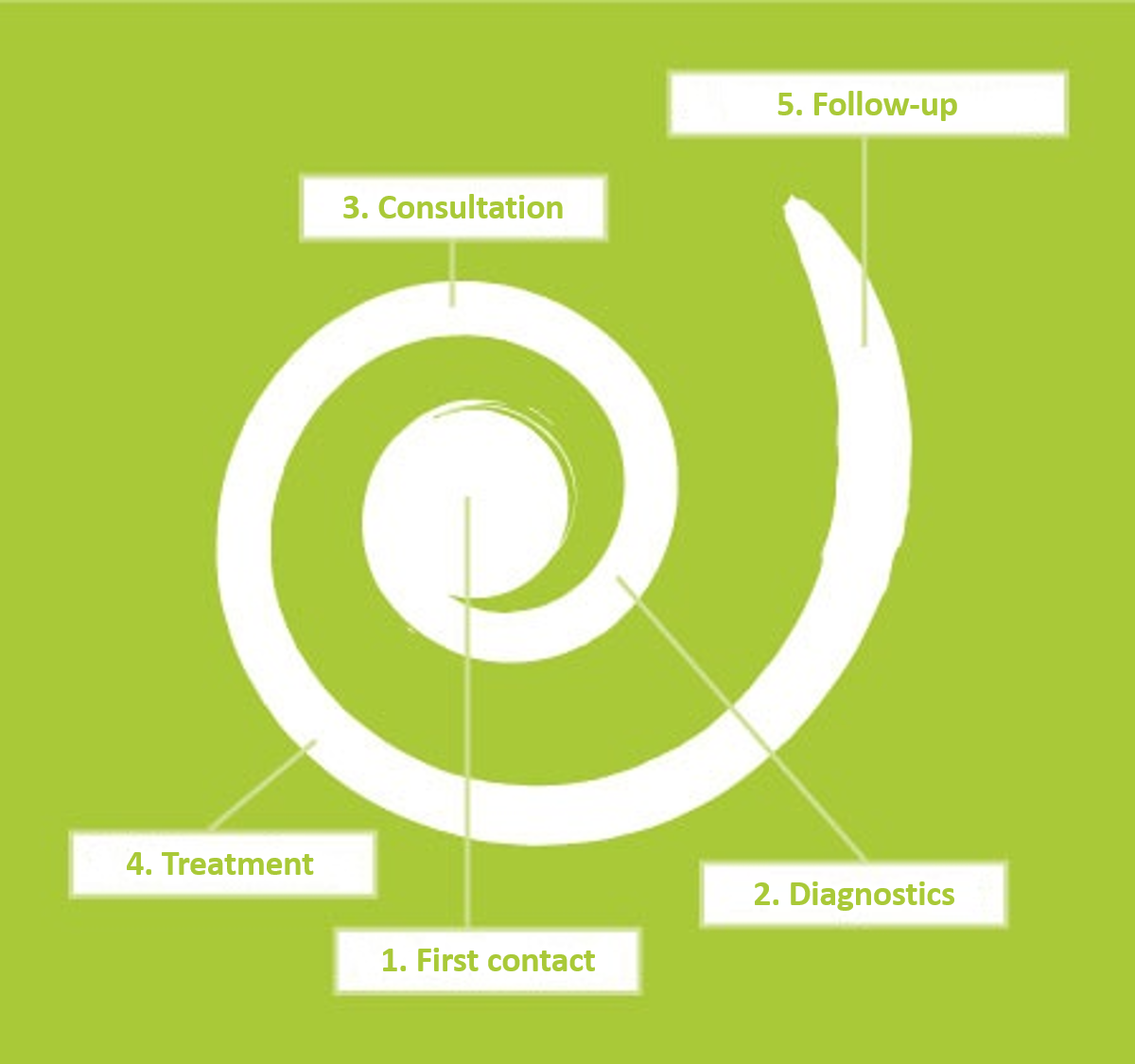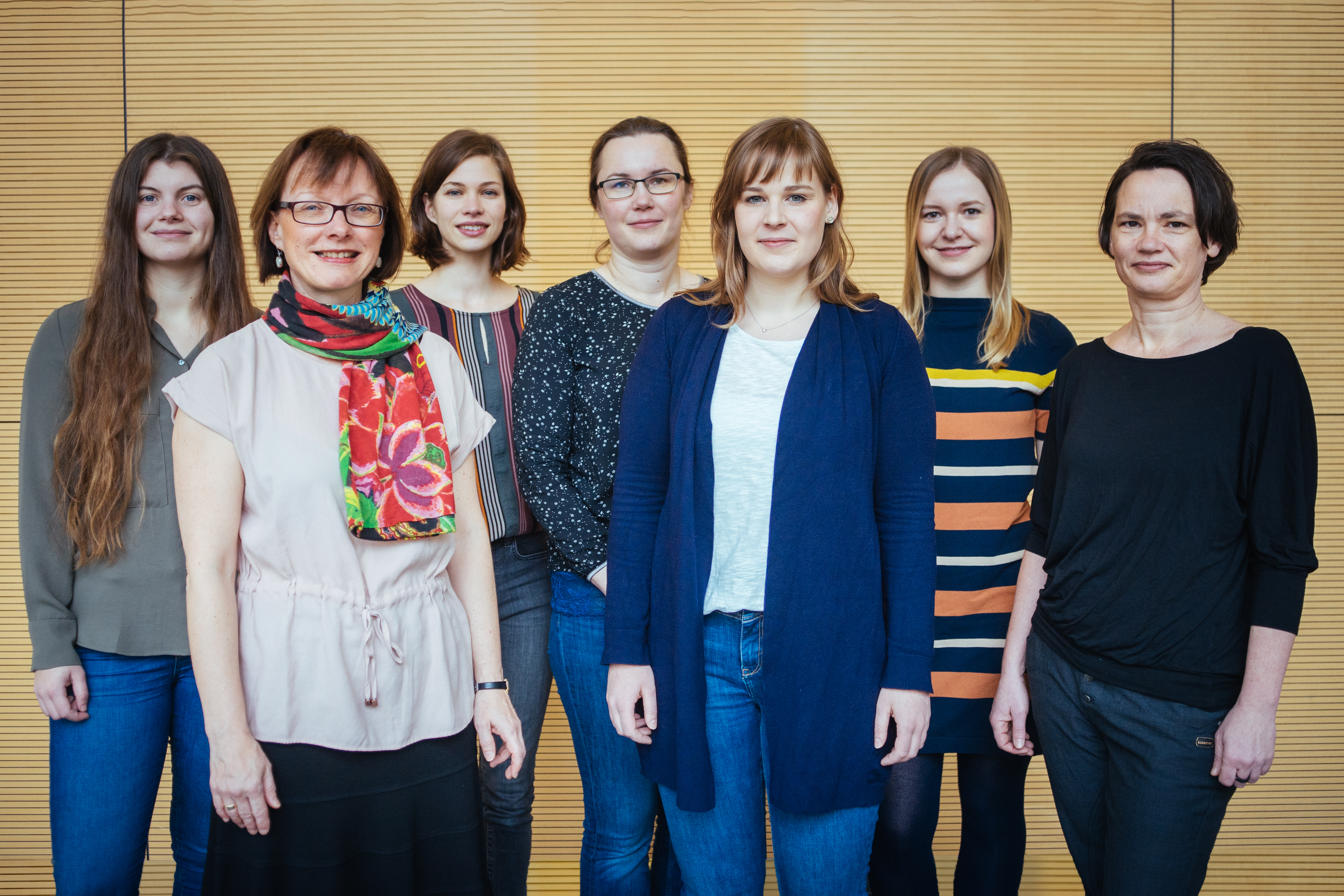Looking for support? You’ve come to the right place. The Early Detection and Intervention Centre Dresden Früh dran! offers contact, diagnostic and referral services when young adults experience stressful changes in their thoughts, feelings and behaviour. We aim to recognise early signs of a mental disorder or an increased risk of illness and offer necessary help at an early stage. Get in touch with us!
Recognising psychological changes early – and acting in good time
There are often major changes in the lives of young adults - in their living environment, but also in their own thoughts, feelings and behaviour. These changes are usually quite normal and form part of forging one's own life.
However, sometimes these changes become very stressful and difficult to control, and they may be the first symptoms of a mental illness.
It is often difficult for those affected to distinguish between these developments. In such a situation, the Early Detection and Intervention Centre offers initial help. Together with the affected individual, we strive to find out how to interpret the psychological changes and symptoms.
The logic of physical illness equally applies here as well: The earlier an illness is recognised and treated, the greater the success of the treatment.
The services of the Early Detection and Intervention Centre are currently aimed at young adults between the ages of 16 and 35 and include
- Prompt initial contact and appointment
- Specialised diagnostics
- Advice on prevention and treatment options
- Cooperation with your doctor or psychotherapist
- Specialised diagnostics for the early detection of psychotic and bipolar disorders
Consultation and treatment for children and adolescents under the age of 16 years is provided by the Department for Child and Adolescent Psychiatry and Psychotherapy (www.kjp-dresden.de).
For a specific diagnosis of AD(H)D in adults, please contact Psychiatric Outpatient Clinic at Dresden University Hospital.
The Autism Outpatient Clinic at Dresden University Hospital is specifically dedicated to the diagnosis of autism.
Information for patients
Recognising psychological changes early – and acting in good time!

We will first make an initial appointment with you by telephone. During the appointment you can tell us about your concerns and your current problem. You do not have to give us your name in the first meeting, and you do not need to bring a chip card or referral letter. You are welcome to bring a trusted person with you to the appointment.
At the Early Detection and Intervention Centre, both free conversation and structured interviews are conducted depending on the problems presented. In addition, screening instruments are also used for certain symptom patterns, which are used specifically for the (early) detection of certain disorders.
A clinical judgement on the presence or development of a mental disorder will be made by our team of psychologists and psychiatrists by combining the results of conversations and clinical assessments. Our team will also discuss possible and necessary treatment options in accordance with your diagnostic results.
The outcome is discussed in an individual feedback session with the affected person in order to jointly determine the most suitable option forward. Further treatment recommendations can vary in many ways and range from psychotherapeutic and psychiatric to counselling and social therapy services. If indicated, a detailed report of the findings will be prepared for those providing further treatment.
Information for practitioners
If you work in the field of social therapy and are unsure about the presence of psychological symptoms in clients, you can refer them to us. To do so, please complete the following form and send it to us. Based on the information you provide, we will decide whether we are the appropriate point of contact and, if so, will contact the client directly. If we need more information or consider another point of contact to be more suitable, we will contact you to discuss this.
If you work in the psychological, psychotherapeutic or psychiatric field, please only refer patients to us if you suspect that a bipolar or psychotic disorder may be developing. We kindly ask you to complete the following form and send it to us with as much information as possible and your specific question(s). Depending on the information received, we will then arrange an appointment with the patient or contact you again. Once the diagnosis has been made, you will receive a short letter from us with the results of our examination.
If indicated after initial consultation and anamnesis, our services include diagnostics using the Structured Clinical Interview (SKID), and risk assessment for psychotic disorders (SIPS, SPI-A) and bipolar disorders (BPSS, EPIbipolar).
Structured Clinical Interview
Structured clinical interviews are considered the ideal way to arrive at reliable and accurate diagnoses of mental disorders. These systematically record the relevant diagnostic areas by means of a tested catalogue of questions in a personal interview. The Structured Clinical Interview (SKID) is such a structured interview procedure for diagnosing mental disorders according to DSM-IV, a classification system for mental disorders.
Early detection of psychotic disorders
Two semi-standardised interview procedures (Schizophrenia Proneness Interview-Adults, SPI-A and Structured Interview for Prodromal Symptoms, SIPS) are used to assess symptoms that indicate the development of psychosis (SIPS) or schizophrenia (SPI-A).
Early detection of bipolar disorders
Research into the early detection of bipolar disorders is still in development. First available instruments to provide indications of the development of bipolar disorders are being researched further at the Early Detection and Intervention Centre: The Bipolar Prodromal Symptom Scale (BPSS) maps low-threshold hypomanic symptoms and the Epi-Bipolar indicates specific risk factors for the development of bipolar disorder.
News (German only)
Contact

- V. Holthoff-Detto
Clinic Director
- C. Berndt
Psychological director
- K. Bröckel-Bundt
Psychological director
- J. Hänsch
Psychologist
- M. Gliemann
Psychologist
- B. Jopke
Administration office
- B. Maicher
Psychologist
- J. Martini
Junior Professor, Psychological psychotherapist
- A. Pfennig
Head of the Early Detection and Intervention Centre
- J. Schneider
Psychologist
How to find us
University Hospital Carl Gustav Carus
at the Technische Universität Dresden
Department of Psychiatry and Psychotherapy
Early Detection and Intervention Centre Dresden Früh dran!
Building no. 15, 3rd floor
Fetscherstrasse 74
01307 Dresden
Unfortunately, our usual contact rooms are not barrier-free - after an elevator ride to the 2nd floor, you still have to climb 28 steps by foot to the 3rd floor. If your mobility is restricted, please do let us know when you book your appointment, so that we can arrange a suitable room for your appointment.
Arriving by public transport
Tram lines 6 and 12: Tram stop Augsburger Straße/Universitätsklinikum
Bus line 64: Bus stop Universitätsklinikum (directly on the premises)
Arriving by car
Arriving from Fiedlerstraße, you may park in the hospital’s multi-storey car park. Please note that parking on the premises and in the multi-storey car park will incur parking fees.
Contact us
This is NOT an emergency number. For emergencies, please contact the emergency services on 112 or the Psychosocial Crisis Service (0351-8041616; 17:00–23:00 Monday to Sunday).
Telephone: 0351 4582876
You will reach the answering machine of the Early Detection and Intervention Centre. Please leave your contact details and a brief message, and we will call you back as soon we can.
If you contact us via the contact form below or by email, please bear in mind the sensitivity of personal and health-related data (see data protection notice below).
Email: fruehdran@uniklinikum-dresden.de





